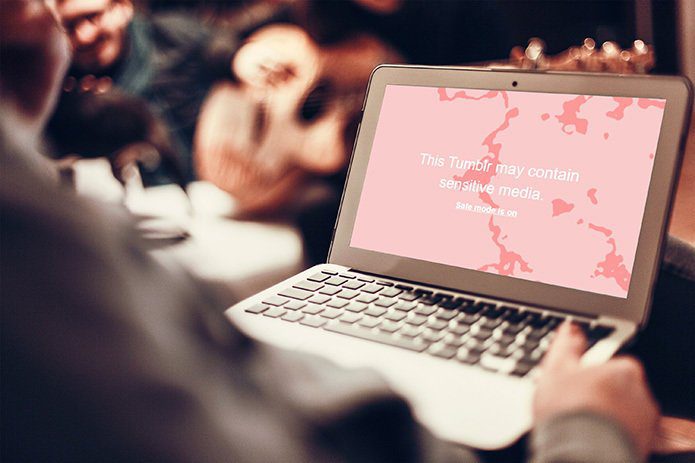However, that doesn’t necessarily mean that you need the entire world to start ogling at your work. Perhaps, you only want people who actually know about you to check in. Or maybe you like your blog being kept entirely private. But can you do that? Yes, you can! Tumblr features an array of visibility options that you can use to impose some serious privacy measures on any blog of your choosing. It’s actually pretty simple to block search engines or hide a blog from other Tumblr users, so let’s find out how.
Available Visibility Settings
Tumblr provides up to three separate visibility settings that let you manage the level of exposure for any blog. They are: Hide yourblog.tumblr.com – Turn this option on to completely hide the Tumblr blog. Only you can view it from your dashboard. However, the blog may still appear in search engines, but accessing it is completely out-of-bounds to everyone. If you want complete privacy, then this is it. Hide yourblog.tumblr.com from search results – This option discourages search engines from indexing the blog. If already indexed, search engines would drop it from their caches eventually. The blog also wouldn’t show up even within Tumblr’s own search feature. yourblog.tumblr.com is explicit – Use this option if you only want people who are logged into Tumblr, and further have the Safe Mode restriction disabled, to view your blog. Make sure to use this if your blog contains NSFW (Not Safe for Work) content. You can have all three options turned on simultaneously, but, do note that marking a blog as explicit also forcibly enables the option to hide the blog from search engines. To get to these settings, you can use the Web, Android, or iOS versions of Tumblr, so read on to find out how exactly you do that.
Web
Step 1: Sign in to your Tumblr dashboard, click the Account icon, and then click Settings. Step 2: Select the blog that you want to be restricted from the section labeled Blogs. Step 3: Scroll down to the section labeled Visibility to find all three visibility options listed. Any changes that you perform are saved instantly.
Android
Step 1: On the Tumblr dashboard, tap the Account icon. Now, use the pull-down menu at the top of the dashboard to select a Tumblr blog, and then tap the Settings icon. On the following screen, tap Visibility. Step 2: You should find all visibility options listed on the subsequent screen. Perform your changes, and then tap the back button repeatedly to get back to the dashboard.
iOS
Step 1: Tap the Account icon on the Tumblr dashboard and select a blog. Step 2: Tap the Settings icon, and then select Visibility. Step 3: Use the appropriate visibility options to make the required changes.
Password-Protect Secondary Blog
Before we wrap things up, let’s take a look at another privacy-related feature available for secondary Tumblr blogs. This involves securing your blog with a password, which means that you can directly control who has access to your work. Setting up a password is pretty straightforward, but you can only do it via the Web version of Tumblr. Begin by getting to the Tumblr Settings screen. Next, select the blog that you want to password-protect, and then scroll down to the bottom of the screen. Here, you should see an option labeled Password. Tap the switch next to it, and then enter a password. Afterward, click anywhere on the screen, and Tumblr should save that password. Now, just share the password with someone who wants access to your blog, and they should be able to view it. If you want to remove password-protection at a later time, simply disable the option from the same Settings screen.
Some Privacy Sure Feels Good
There you go! You should feel much comfortable now. Kudos to Tumblr for giving us these visibility settings that are just so easy to use! It’s so refreshing to find a blogging platform that actually understands its users for a change, right? So, what settings did you change, and why? Feel free to share your thoughts in the comments below. The above article may contain affiliate links which help support Guiding Tech. However, it does not affect our editorial integrity. The content remains unbiased and authentic.


















